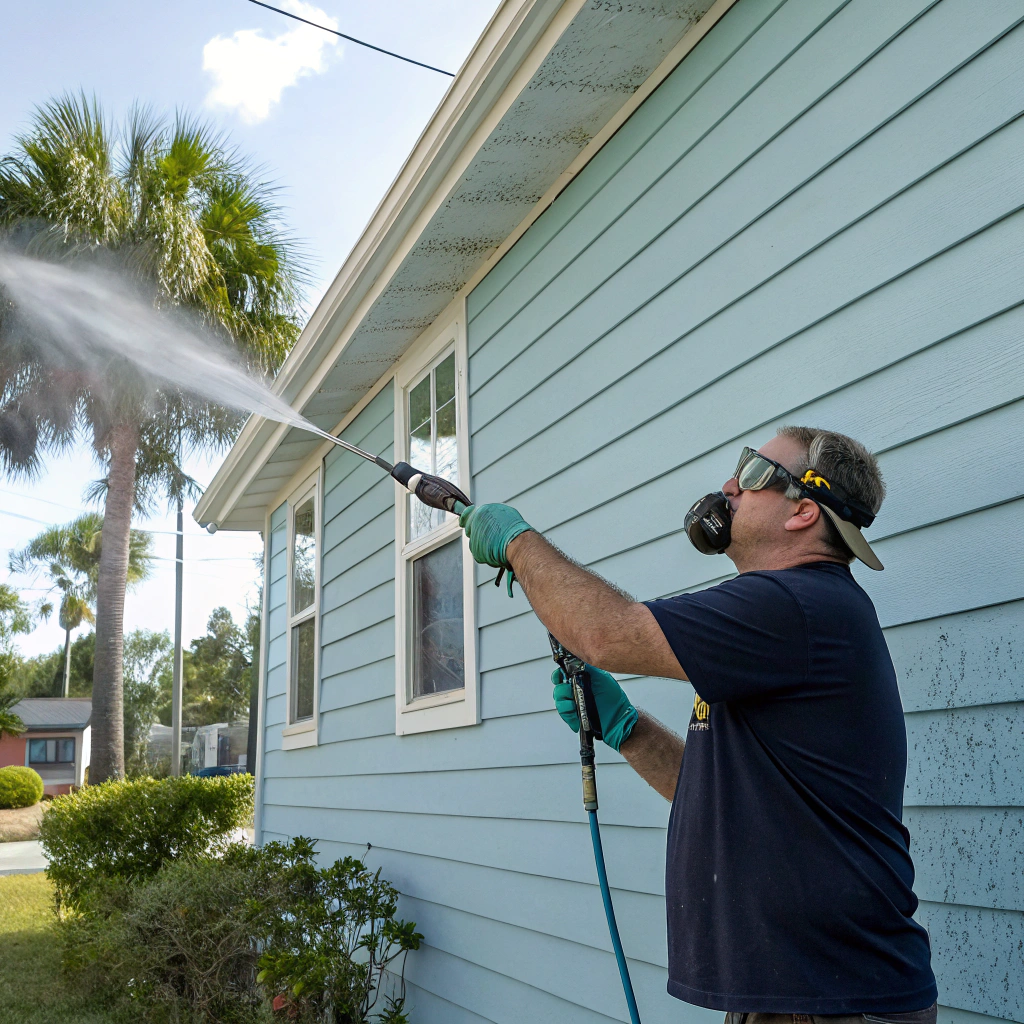Introduction
When it comes to maintaining your home, roof care often takes a backseat. Many homeowners are unaware of the best practices for keeping their roofs in tip-top shape. One popular method that often gets mixed reviews is roof pressure washing. While pressure washing can be effective, numerous myths surround this practice that can lead to improper techniques and potential damage. In this article, we’ll sift through the noise and tackle these Pressure washing misconceptions head-on, providing you with expert insights to ensure your roof remains healthy. So grab a cup of coffee and let's dive into the world of pressure washing!
Pressure Washing Myths: Debunking Common Misconceptions About Roof Care
What is Roof Pressure Washing?
Roof pressure washing involves using high-pressure water jets to clean debris, moss, algae, and dirt from the surface of your roof. The technique is designed to restore the original appearance of the roofing material and prolong its lifespan.
The Importance of Roof Maintenance
Regular maintenance not only enhances curb appeal but also prevents costly repairs down the line. A clean roof can significantly reduce the risk of leaks and structural damage.
Common Myths About Roof Pressure Washing
Before diving deeper into each myth, let’s list some common misconceptions surrounding roof pressure tampa power washing washing:
All roofs can be safely pressure washed. Pressure washing always damages roofing materials. You can do it yourself without any training or equipment. Pressure washing eliminates all types of roof stains. It's unnecessary if my roof looks clean. It’s always safe for shingles.Myth 1: All Roofs Can Be Safely Pressure Washed
Understanding Different Roofing Materials
Not all roofing materials respond well to pressure washing. For instance, asphalt shingles may suffer damage due to excessive force while tile roofs might withstand it better.
Expert Insight
Many professionals recommend using soft washing instead for delicate surfaces like asphalt shingles or wooden roofs. This method uses lower pressure along with specialized cleaning solutions that effectively remove algae and moss without risking damage.
So Which Roofs Can Handle Pressure Washing?
- Metal roofs: Generally safe for high-pressure cleaning. Concrete tile roofs: Can tolerate moderate pressure but should be approached cautiously. Asphalt shingles: Best avoided unless you use soft wash techniques.
Myth 2: Pressure Washing Always Damages Roofing Materials
Is Damage Inevitable?
While it's true that improper techniques can lead to damage, when done correctly by professionals in areas like pressure washing Tampa, you can mitigate risks significantly.
Real-Life Example
A homeowner in Tampa decided to DIY his roof pressure wash without understanding the nuances involved—resulting in several damaged shingles that led to leaks later on.
Best Practices to Avoid Damage
- Use soft wash methods where appropriate. Hire professionals who utilize knowledge about various roofing materials. Ensure thorough inspection before proceeding with any cleaning.
Myth 3: You Can Do It Yourself Without Any Training or Equipment
Why Hiring Professionals Matters
Many assume that they can pick up a pressure washer and get started right away without any prior experience. However, this assumption could lead to disastrous results.
What Could Go Wrong?
Improper handling of equipment could result in:
- Personal injury Property damage Ineffective cleaning
Choosing Professional Services
Hiring experts not only ensures safety but also guarantees quality work that extends the life of your roof.
Myth 4: Pressure Washing Eliminates All Types of Roof Stains
Understanding Stains on Your Roof
Different stains require different treatments; while pressure washing may remove dirt and algae, it might not be effective against lichen or mold which often requires specific cleaners.
Types of Stains
Algae stains - often occur in humid climates. Moss - grows in shaded areas and retains moisture. Lichen - more stubborn than other organic growths.Solutions Beyond Pressure Washing
Using chemical treatments along with low-pressure cleaning often yields better results for persistent issues like lichen growth.
Myth 5: It’s Unnecessary If My Roof Looks Clean
Surface Cleanliness vs Structural Integrity
Just because your roof appears clean doesn’t mean it’s free from harmful elements like mold or algae hidden beneath layers of dirt.
Why Regular Cleaning is Crucial
Regular maintenance helps prevent long-term problems such as rot or premature aging caused by unseen contaminants.
Myth 6: It’s Always Safe for Shingles
Shingle Vulnerability Explained
Asphalt shingles have granules that protect them from UV rays; however, high-pressure washes can strip these granules away leading to reduced effectiveness over time.
Safeguarding Your Shingles
Always consult professionals who understand how different pressures impact various shingle types before proceeding with any cleaning process.
FAQs About Roof Pressure Washing
1. How often should I have my roof cleaned?

2. Does pressure washing hurt my plants?
If you're concerned about nearby vegetation, professionals will take precautions like covering plants during the process or using eco-friendly detergents.
3. How much does professional roof cleaning cost?
On average, costs range between $250-$600 depending on factors such as size and material type; always obtain quotes from multiple providers!
4. Will insurance cover damage caused by improper cleaning?
Most policies won't cover DIY mishaps; thus hiring experienced professionals protects both your investment and insurance coverage!
5. What are alternative methods besides pressure washing?
Soft washing is a viable option that uses gentle water flow paired with appropriate chemicals instead of high-pressure systems for sensitive surfaces!
6. Is there any preparation needed before a professional arrives?
Yes! Clear away debris near gutters or around vents so technicians have unobstructed access when performing their tasks!
Conclusion
In conclusion, understanding the myths surrounding roof care—specifically regarding pressure washing—can save you time, money, and potential headaches down the road! Remember that not every solution fits all situations; knowing when to employ certain techniques (and when NOT) will keep your home looking great while protecting its value long-term! Whether you're considering professional services in places like Tampa or doing research at home—knowledge is power! Happy roof maintenance!
